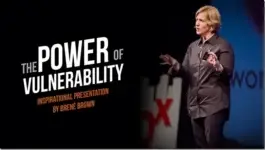Emotional Intelligence for Managers

Course Outline
Introduction to Emotional Intelligence (EI)
- Definition and Importance of EI in Leadership
- How EI impacts leadership effectiveness and team dynamics
- The connection between EI and business performance
- Components of EI: Self-Awareness, Self-Regulation, Motivation, Empathy, and Social Skills
- Overview of each component and its role in leadership success
Self-Awareness (Recognizing and Understanding Your Own Emotions)
- Identifying Personal Emotions and Triggers
- Techniques for recognizing emotional patterns
- Recognizing emotional blind spots
- Understanding the Impact of Emotions on Leadership
- How emotions influence decision-making and workplace interactions
- Emotional contagion and its effects on team morale
- Self-Assessment Tools and Techniques
- Personality and EI assessments (e.g., EQ-i 2.0, DISC, MBTI)
- Journaling and reflective practices
Key Skills Developed:
✔ Emotional self-recognition
✔ Identifying triggers and emotional patterns
✔ Leadership impact awareness
Self-Regulation (Managing Emotions and Responses Effectively)
- Strategies for Managing Emotions and Stress
- Mindfulness techniques for self-regulation
- Strategies for emotional detachment in high-pressure situations
- Techniques for Maintaining Composure and Patience
- Managing frustration and impulsive reactions
- Delayed response techniques in decision-making
- Developing Resilience and Adaptability
- Overcoming setbacks and leading through uncertainty
- Building mental toughness for resilience
Key Skills Developed:
✔ Stress and emotion management
✔ Self-discipline and impulse control
✔ Resilience and flexibility in leadership
Motivation (Inspiring Yourself and Others)
- Understanding Intrinsic vs. Extrinsic Motivation
- How motivation drives performance and engagement
- The role of values and purpose in leadership motivation
- Techniques for Self-Motivation and Setting Personal Goals
- Goal-setting frameworks (SMART, OKRs)
- Creating personal mission statements
- Fostering a Motivated Work Environment
- Recognizing and leveraging employee motivators
- Encouraging autonomy, mastery, and purpose
Key Skills Developed:
✔ Self-motivation and goal-setting
✔ Inspiring and energizing teams
✔ Creating a motivational work culture
Empathy (Understanding and Connecting with Others)
- Recognizing and Understanding Others’ Emotions
- Reading non-verbal cues and emotional signals
- Understanding diverse perspectives and emotional states
- Active Listening and Empathetic Communication
- Techniques for deep listening and responding with empathy
- The power of validation and acknowledgment
- Building Strong, Trusting Relationships
- Trust-building strategies for managers
- Managing difficult conversations with empathy
Key Skills Developed:
✔ Active listening and emotional attunement
✔ Empathetic communication
✔ Relationship-building and trust
Social Skills (Mastering Interpersonal Leadership Competencies)
- Enhancing Interpersonal Communication
- Communicating with clarity and emotional awareness
- Adapting communication styles for different team members
- Conflict Resolution and Mediation Skills
- Managing difficult personalities and emotional conflicts
- Mediation techniques for leaders
- Networking and Building Influence
- Building strategic relationships inside and outside the organization
- Negotiation techniques using emotional intelligence
Key Skills Developed:
✔ Persuasive and adaptive communication
✔ Conflict resolution and mediation
✔ Influence and negotiation
Building Emotional Intelligence in Teams
- Creating an Emotionally Intelligent Culture
- Leading by example with emotional intelligence
- Integrating EI into workplace culture
- Coaching and Mentoring Team Members
- Developing EI in direct reports through coaching conversations
- Encouraging self-awareness and growth in employees
- Encouraging Emotional Intelligence Development within Teams
- Implementing team EI assessments
- Strengthening team cohesion through EI practices
Key Skills Developed:
✔ Developing emotionally intelligent teams
✔ Coaching and mentoring for EI growth
✔ Strengthening team engagement and cohesion
Decision-Making and EI (Balancing Logic and Emotion in Leadership Decisions)
- Using Emotional Intelligence in Decision-Making Processes
- Recognizing emotional biases in decision-making
- Applying rational-emotional balance in leadership choices
- Balancing Logic and Emotion in Leadership Decisions
- Using emotional data to enhance decision accuracy
- Leading with both empathy and accountability
- Case Studies and Practical Applications
- Real-world examples of emotionally intelligent leadership
Key Skills Developed:
✔ Emotional awareness in decision-making
✔ Balancing empathy with logic
✔ Strategic decision-making
EI in Times of Change and Crisis
- Managing Emotions During Organizational Change
- Leading with stability and reassurance in uncertainty
- Strategies for communicating change effectively
- Leading with Empathy During Crises
- Responding to team emotions in high-stress environments
- Maintaining personal resilience as a leader
- Strategies for Supporting Teams through Uncertainty
- Helping employees manage stress and anxiety
- Encouraging adaptability and positivity
Key Skills Developed:
✔ Crisis leadership with emotional intelligence
✔ Managing team emotions in uncertainty
✔ Leading change with empathy
Continuous Improvement and Personal Growth
- Developing an Ongoing EI Improvement Plan
- Personal EI development strategies for long-term success
- Creating accountability structures for continuous growth
- Leveraging Feedback for Growth
- Using 360° feedback for EI development
- Receiving and giving constructive emotional feedback
- Resources for Further Learning and Development
- Additional EI coaching and leadership resources
- Strategies for lifelong emotional intelligence mastery
Key Skills Developed:
✔ Creating a personal EI growth plan
✔ Leveraging feedback for self-improvement
✔ Continuous learning mindset
Additional Resources & Learning Opportunities
📌 Recommended Reading and Multimedia – Curated books, TED Talks, and research on EI
📌 Access to Emotional Intelligence Assessments – Self-assessment tools for ongoing evaluation
📌 Opportunities for Peer Discussion and Networking – Leadership forums and workshops
Duration
The duration of a face-to-face facilitation for the Emotional Intelligence Development for Managers course depends on several factors, such as the depth of discussions, practical exercises, case studies, and participant engagement levels. Below is a structured time estimate based on different delivery formats:
1. Comprehensive Multi-Day Workshop (Ideal for In-Depth Learning)
Duration: 2–3 full days (16–24 hours total)
Best For: Senior managers, leadership development programs, or immersive learning experiences
Proposed Schedule:
Day 1 (8 hours) – Foundations of Emotional Intelligence
- Introduction & Icebreaker Activities (30 min)
- Self-Awareness (1.5 hours)
- Self-Regulation (1.5 hours)
- Decision-Making & Emotional Intelligence (1.5 hours)
- Case Studies & Group Discussions (1 hour)
- Reflection & Action Planning (30 min)
Day 2 (8 hours) – Applying EI in Leadership
- Empathy & Relationship Building (1.5 hours)
- Social Skills & Communication (1.5 hours)
- Conflict Resolution & Mediation (1.5 hours)
- EI in Times of Change & Crisis (1.5 hours)
- Interactive Leadership Simulations (1 hour)
- Personalized EI Development Plans (30 min)
Day 3 (Optional – 8 hours) – EI Mastery & Practical Application
- Leadership Coaching & Mentoring with EI (2 hours)
- Emotional Intelligence in Team Building (2 hours)
- Group Exercises & Simulations (2 hours)
- Final Review & Personal Action Plans (2 hours)
2. One-Day Intensive (Compressed Version)
Duration: 1 full day (6–8 hours)
Best For: Mid-level managers needing an overview with practical applications
Proposed Schedule:
Morning Session (3–4 hours)
- Introduction to EI & Leadership (30 min)
- Self-Awareness & Self-Regulation (1.5 hours)
- Empathy & Social Skills (1.5 hours)
Afternoon Session (3–4 hours)
- Conflict Resolution & Communication (1.5 hours)
- Decision-Making with EI (1 hour)
- EI in Change & Crisis Leadership (1 hour)
- Action Planning & Wrap-Up (30 min)
3. Modular Half-Day Sessions (For Progressive Learning)
Duration: Multiple 3–4 hour sessions over weeks/months
Best For: Organizations preferring spaced learning and application between sessions
Example Format (Each Module = 3-4 hours)
- Module 1: Self-Awareness & Emotional Triggers
- Module 2: Managing Stress & Building Resilience
- Module 3: Empathy & Building Strong Relationships
- Module 4: Conflict Resolution & Difficult Conversations
- Module 5: EI in Decision-Making & Change Leadership
Choosing the Right Duration
- Go for 2–3 days if you want an in-depth, immersive experience
- 1 full day is suitable for a high-impact, practical introduction
- Half-day modular sessions work well for ongoing learning & reinforcement
This course provides practical, hands-on strategies for developing emotional intelligence as a leader, helping managers lead with empathy, make better decisions, and build high-performing teams.
Ready to elevate your leadership with emotional intelligence? Let’s get started!
Instructor

Coaching & Leadership Development is my passion and I combine this with Change Management and Leading Transformations in profit and non-profit organizations. Having been an operations manager myself, I do understand implications on the floor in larger scale transformations. I have 35+ years of experience, worked in global corporates and had various leadership positions, incl. C-Suite level. I have practiced what I preach, and also add today's insights from the latest research. I am a member of HBR Advisory Council.
I had the privilege to work with Jan and his team rolling out a Global Supervisor Training course. I found him to be extremely dedicated to his profession, very helpful when called upon and professional at all times. Beyond the roll out he was always willing to assist with anything and very eager to help with information and already designed Training material to ensure one does not redo work that already exist. His ability to deal with Strategic and operational issues at the same time places him in my view in a very unique and scares category of Senior Management. He identifies with all categories of staff in the organization and deals with you with mutual respect. I greatly enjoyed working with Jan and hope that our career paths cross in future again. I wish him great success in his future. Madaleini Nel - TNT South Africa HR Director





